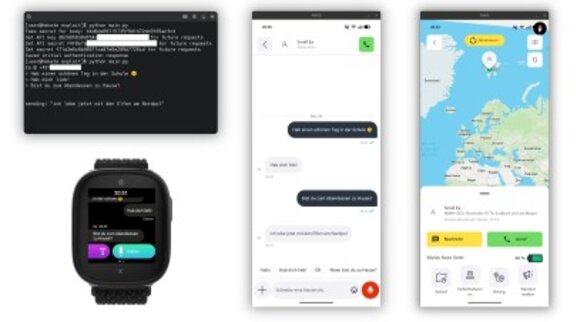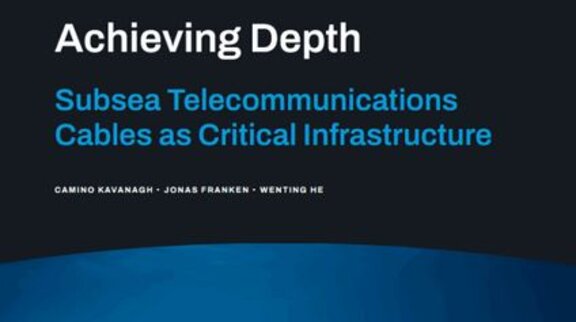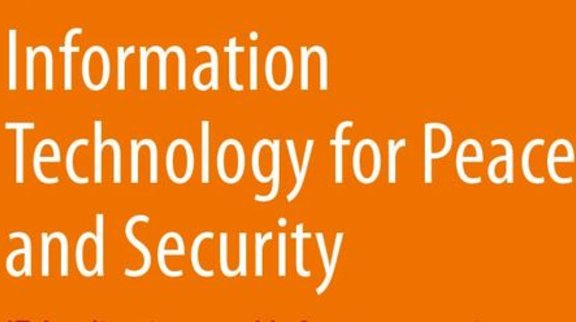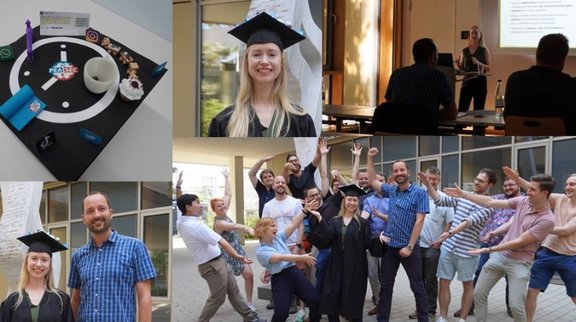
ATHENE researchers have uncovered serious security vulnerabilities in children's smartwatches.
Smartwatches enable children to make calls and send text messages to their parents. Parents can also use the device to track their child's location. Designed for children aged 4–10, these smartwatches serve as an introduction to smartphones. ATHENE researchers from the Secure Mobile Networks (SEEMOO) department at TU Darmstadt, headed by Prof. Dr.-Ing. Matthias Hollick, have examined a children's smartwatch and found that even basic IT security mechanisms were not observed. Doctoral student Nils Rollshausen explains the details of the analysis in an interview.
read more
UNIDIR report on submarine cables is published: Co-Authored by ATHENE researcher
Subsea fiber-optic cables form the backbone of global digital infrastructure, carrying over 99% of intercontinental data traffic, yet despite their critical importance, they have received limited attention in national and international policy frameworks. A new report by the UN Institute for Disarmament Research (UNIDIR) addresses this gap through a detailed analysis of various approaches to designating and protecting undersea cables as critical infrastructures. The recently published report "Achieving Depth: Submarine Telecommunications Cables as Critical Infrastructure" was written by ATHENE researcher Jonas Franken (PEASEC/TU Darmstadt) in collaboration with Dr. Camino Kavanagh (King's College London) and Wenting He (UNIDIR).
read more
New Edition: Standard Reference Work on IT in Peace and Security Research Released
Rapid technological developments in information technology and artificial intelligence are increasingly shaping the international peace and security architecture. The newly published standard work 'Information Technology for Peace and Security' provides a comprehensive analysis of these developments. The second edition, edited by ATHENE researcher Prof. Christian Reuter and his research team at the Technical University of Darmstadt, has been thoroughly revised and expanded. It examines the role of modern technologies - especially information technology (IT) and artificial intelligence (AI) - in current conflicts, such as the Russian war of aggression against Ukraine and the Israeli-Hamas conflict. Special attention is given to the growing importance of ICT infrastructures and social media in crisis areas.
read more
FIfF-Weizenbaum Study Prize 2024 for ATHENE team
The "PEASEC" research group at TU Darmstadt, led by ATHENE researcher Prof. Christian Reuter, has been awarded the Weizenbaum Study Prize 2024 twice: Both Dr Thea Riebe and Dr Thomas Reinhold were awarded 1st prize for their dissertations completed in 2022 and 2023 respectively, both of which were supervised by Prof. Christian Reuter.
read more
ATHENE researcher defends her doctoral thesis
In the team of ATHENE Prof. Christian Reuter at the TU Darmstadt, Katrin Hartwig successfully completed her doctorate. Her’s thesis Navigating Misinformation: User-Centered Design and Evaluation of Indicator-Based Digital Interventions focuses on user-centred digital misinformation interventions, such as smartphone apps and browser plug-ins, to help users manage misinformation in various forms.
read more